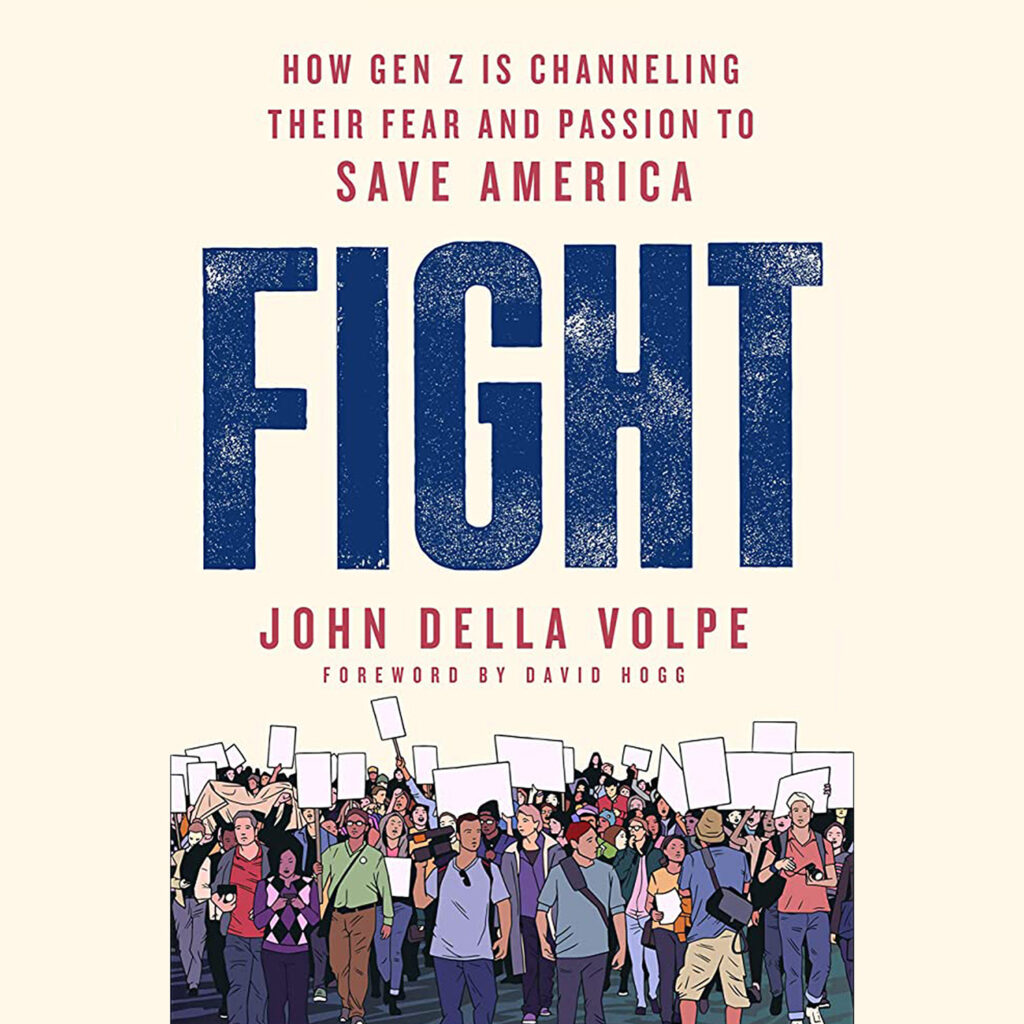John Della Volpe knows a thing or two about Gen Z.
Though he is not a member of the generation, Della Volpe has spent more than 20 years studying American youth at the Harvard Kennedy School Institute of Politics. His new book, Fight, is the culmination of that research, and is a rigorous look at the most important generation in American politics.
At its core, Fight is an effort by someone who is not from Gen Z to understand it. Della Volpe’s empathy and curiosity show up on every page, and they cut a strong contrast to the way older generations have treated younger generations for decades, if not longer. The Silent Generation said Baby Boomers were hippies; Boomers blamed Millenials’ financial struggles on avocado toast. Many now attack Gen Z as overly sensitive or dramatic. But the truth that Della Volpe highlights is that generations are not independent of one another.
“To understand Generation Zers — who they are and why they do what they do — we need to understand who raised them, who came before, and who are still present in their lives.”

Generations are not born fully formed. Like a chunk of marble chiseled into a sculpture, they come together over time, shaped by the world around them. And that world is full of older decisionmakers, who grew up in a world that was filled with other old decisionmakers, and on and on for as long as people have existed. We are shaped by others just as we shape others.
“Generations are what happen when a group of people coming of age share the experience of living through certain historical events,” Della Volpe writes. “Values naturally emerge. They inform worldviews, ways of thinking that are carried for a lifetime.”
As such, Della Volpe tells the story of Gen Z by moving through the 2010s and early 2020s, stopping to tell the stories of some of the most formative events in Gen Z’s upbringing. It’s not a rosy portrait — in fact, it’s filled with traumatic events, including a school shooting, a cresting wave of hate, and a murder broadcast around the world. But Della Volpe’s thesis is proven again and again by what Gen Z does in the face of these traumas. It fights.
To be clear, Della Volpe is not an unbiased narrator. He advised President Biden’s 2020 presidential campaign, and he clearly admires the work of many of the progressive activists in the book. But he does not act like he is removed from politics — rather, he makes his stances clear, and then provides rigorously collected data to explore the topics Gen Z cares about. At first, I struggled when I felt his opinions were coming out a bit too clear on the page, but then I came to appreciate Della Volpe’s honesty. There was no hidden agenda — he was clear about how he felt, and then made his case with hard data.
Generation Z is an umbrella term for the roughly 70 million people born between the mid-1990s and the early 2010s. While Gen Z has tended to support liberal policies and candidates in recent elections, it is a group roughly as large as the population of France. There are Zoomers across the political spectrum, and leaders from both sides of the aisle have learned in recent elections that, in order to win, they will need support from the youngest voters.
One thing members of Gen Z tend to have in common, though, is that they make their opinions known. And while it doesn’t have a trademark on protesting, Gen Z has come of age on picket lines and marches. After the Marjory Stoneman Douglas High School shooting, survivors launched the March for Our Lives movement. After Donald Trump won the White House despite pulling just 36 percent of voters under 30, young feminists crowded the streets of Washington, D.C. for the Women’s March. George Floyd’s murder sparked the Black Lives Matter protests, and climate change has encouraged young people around the world to join the School Strike for Climate.
At its strongest points, Fight is told not from Della Volpe’s point of view, but from those of the hundreds of young Americans he has interviewed in focus groups and polls. The “science” side of “social science” can only go so far — in order to paint a full picture of Gen Z, Della Volpe steps away from the data and talks to young people to hear their concerns and priorities.
“If you want to understand what America will be like ten, twenty, thirty years from now,” Della Volpe writes, “it starts with Generation Z.”



